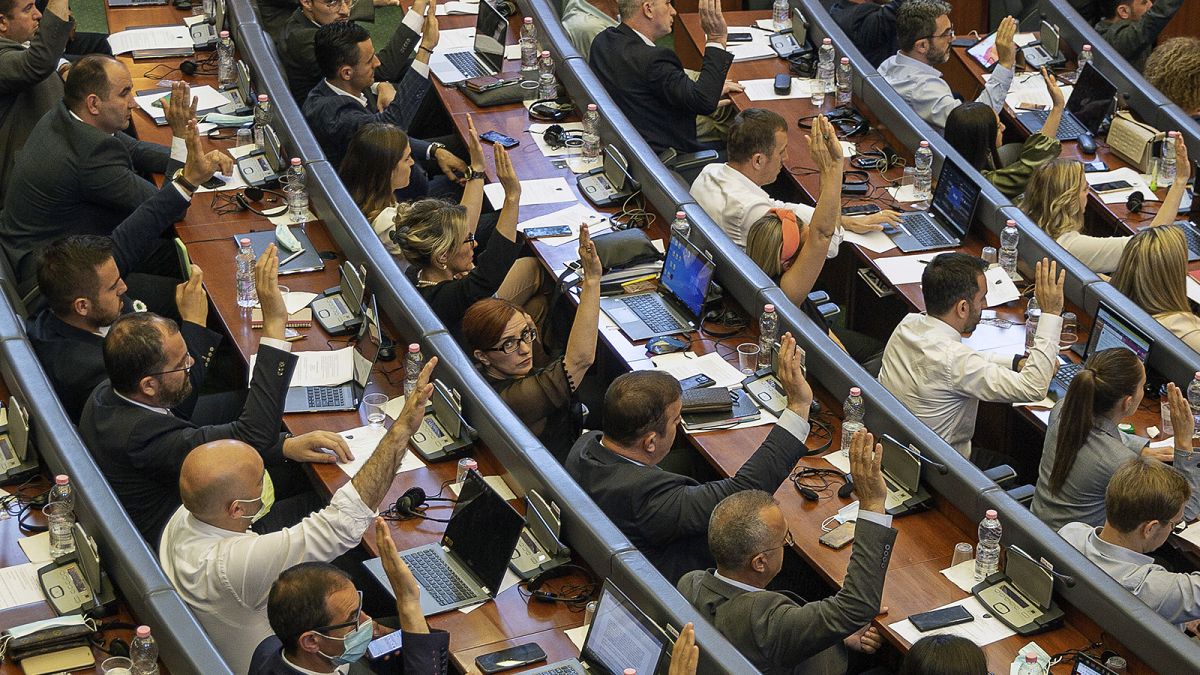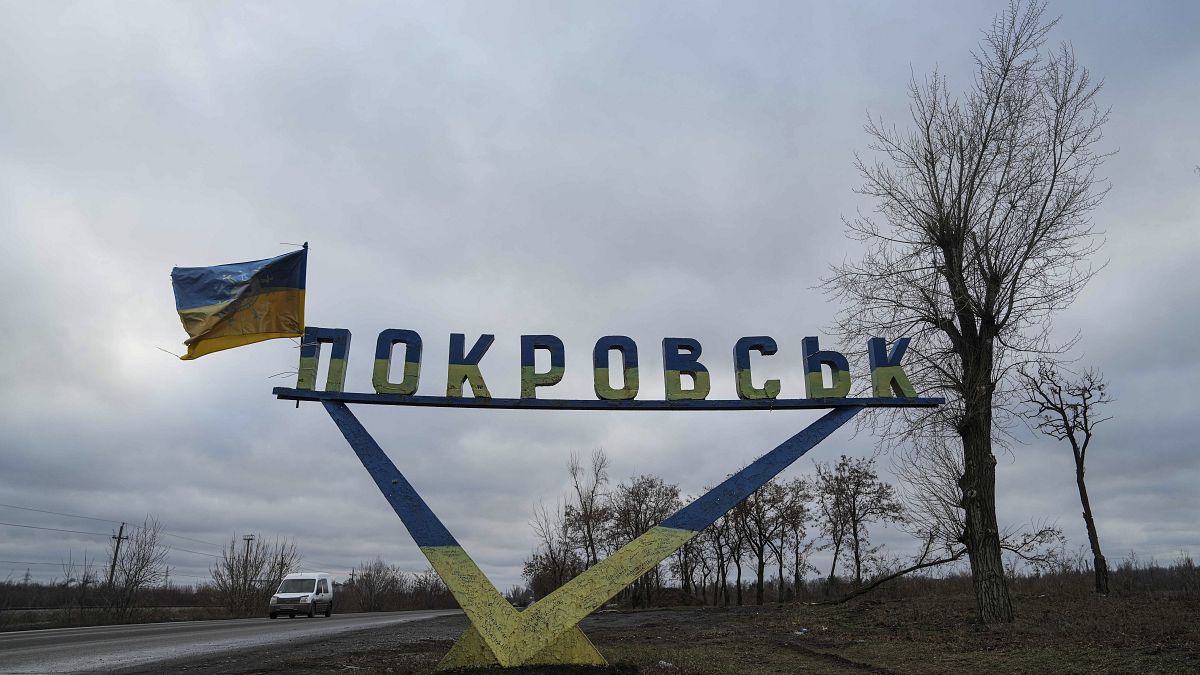Europe’s tough choice: Aluminium sanctions or climate goals

The opinions expressed in this article are those of the author and do not represent in any way the editorial position of Euronews.
If Europe decides to ban imports of aluminium from Russia, it would need to find a source capable of replacing roughly 500,000 tonnes of material per year. And the list of alternatives is quite limited, Chris Weafer writes.
Since Russia sent its tanks into Ukraine in early 2022, the West has been ratcheting up sanctions pressure against Moscow and its export-focused economy. But it has so far stopped short of targeting one key Russian export — aluminium.
For all this time, this silvery-white and lightweight metal has been a potential target for EU penalties against Moscow.
While a small group of EU states keep pushing for tougher measures against Russia — including imposing a ban on aluminium imports — the larger EU economies are blocking this move.
Restrictions on aluminium could pose a threat to domestic industries, which are already losing out in competitiveness to Asia. Moreover, such a move could seriously undermine Europe’s commitment to achieve its climate goals.
The lingering concerns about a possible ban on shipments of low-carbon aluminium from Russia to the European market have pushed its prices up by 15% so far this year, and prices are set to rise much more sharply if the ban is actually imposed.
Aluminium’s strategic role in Europe and the impact of sanctions
The EU relies on imports for over 90% of its aluminium needs, with 8-9% coming from Russia. Aluminium is critical for a range of strategic industries—from automotive and aerospace to construction and renewable energy.
Even though some countries claim to have stopped buying aluminium from Russia, this metal continues to play a crucial role in meeting Europe’s demand for low-carbon aluminium.
A significant advantage of Russian aluminium is its low carbon footprint, as it is produced using hydropower. This means the production of one tonne of aluminium in Russia emits around 2.1 tonnes of CO2, which is well below the global average of 15 tonnes.
If Europe were to replace Russian aluminium imports, it would likely have to boost its purchases from countries like India and Indonesia, where coal-fired production is widely used. This would create a setback towards achieving EU climate goals by increasing Europe’s reliance on less environmentally friendly metals.
The EU’s initiatives, such as the Green Deal and the Carbon Border Adjustment Mechanism (CBAM), are set to penalise high-carbon imports starting in 2026.
This presents a tough choice for the EU: if it were to sanction low-carbon aluminium, Europe could be forced to rely on higher-emitting alternatives, which could ultimately increase the carbon content of aluminium imports by as much as 14%.
A potential import ban on Russian aluminium would not only disrupt international supply chains but also drive metal prices higher, as seen in early 2022. Back then, expectations of a looming trade disruption between Russia and Europe caused a short-lived spike of 33% in aluminium prices.
While the actual impact of sanctions turned out to be less severe than initially feared, prices are already rising again in 2024 amid renewed discussions about a possible ban on Russian aluminium, and further sanctions could accelerate this trend.
A price surge in aluminium would be damaging for Europe’s small and medium-sized enterprises (SMEs), which employ over 90% of the workforce in the aluminium sector.
A sudden shortage of affordable low-carbon aluminium could ripple across industries that depend on the metal, from construction to packaging. Additionally, prices for scrap aluminium, a critical component of Europe’s recycling efforts, would likely increase as they are linked to the cost of primary aluminium.
Who would benefit from sanctions on aluminium and what are the alternatives?
If the EU bans the import of low-carbon Russian aluminium, China would likely be one of the main beneficiaries. Russia has already significantly increased its aluminium exports to China, which, just like Europe, has a growing need for low-carbon inputs to meet its own climate goals.
If European doors close to Russian manufacturers, they will be forced to redirect even more of their supplies eastward. As a result, European consumers would lose access to Russia’s low-carbon, competitively priced aluminium, while China would not only continue to benefit from Russia’s imports but also gain more power over the aluminium market and its price as an increasingly important buyer.
If Europe decides to ban imports of aluminium from Russia, it would need to find a source capable of replacing roughly 500,000 tonnes of material per year. And the list of alternatives is quite limited.
Iceland, Mozambique, and Norway are often cited as potential suppliers, but there are region-specific challenges associated with each: for example, aluminium from Mozambique has recently faced shipping difficulties, while Norway’s production capacity has decreased in recent years.
Another option could be sourcing aluminium from the Middle East, a key supplier to both Europe and the US. However, with much of its supply already being directed to US buyers, any additional demand from the EU would only further tighten the market.
The EU’s choice
The EU is walking a tightrope between the need to increase the sanctions pressure on Russia while at the same time pushing forward with its climate goals and keeping its own economy and domestic enterprises afloat.
As the EU debates what to include in the next sanctions package against Moscow, policymakers must consider the broader implications of their decisions.
In a time of globally high inflation, economic uncertainty, and the urgency to address climate goals, especially as the world prepares for the COP29 summit in Azerbaijan, the EU will need to carefully weigh the costs and benefits of any proposed actions, including a possible ban on low-carbon aluminium from Russia.
Chris Weafer is the Chief Executive of Macro-Advisory Limited, Eurasia’s leading independent strategic advisory firm, providing strategic insights to global businesses, trader and policymakers.
At Euronews, we believe all views matter. Contact us at [email protected] to send pitches or submissions and be part of the conversation.
World News || Latest News || U.S. News
Source link



